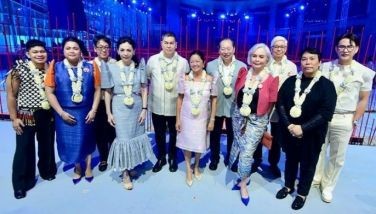Hardliners

Just as quickly as the news about the death of Iranian President Ebrahim Raisi broke, it became stale. The world quickly concluded that his death will not change much.
Raisi, infamous as the “Butcher of Tehran,” was killed in a helicopter crash along with his foreign affairs minister. His tenure in office was period of high discontent and brutal repression.
The sudden death of the sitting Iranian president raised the possibility of intense factional maneuvering and perhaps the rise of more moderate voices in the isolated country. An interim president has been designated and elections are scheduled for June 28.
Before tragedy struck, Raisi was considered the frontrunner in succeeding the ailing “Supreme Leader” Ali Khamenei. His only rival for the highest post is Mojtaba Khamenei, son of the “Supreme Leader.” Mojtaba appears a clear beneficiary of Raisi’s sudden disappearance from the Iranian political scene.
Ali Khamenei, 85, is said to be in poor health. If his own son leads the race to succeed him, we are likely to see the fundamentalist theocracy descend to dynastic politics. It will be no different from North Korea, where political succession has been determined by bloodline through three generations now.
Electoral politics in theocratic Iran is tightly controlled by the mullahs. A select council composed entirely of hardliners preselect candidates for public office, weeding out any reformists or even pragmatists trying to barge into the electoral arena. Because of this, the elections scheduled for next month, following constitutional dictate, is not expected to change the hue and composition of the ruling clique in this unfortunate country.
The only suspense left is whether Mojtaba Khameni will position for the presidency and thereby solidify his bid to succeed his father.
Raisi rose to power as a protege of Ali Khamenei. He is close to the Revolutionary Guards, the paramilitary formation committed to prop up the theocratic regime.
The Revolutionary Guards, in turn, have pushed Iran’s engagement with Islamist militias in Yemen, Syria and Iraq. Among these militias are Hamas, Hezbollah and the Houthis. They are the foot soldiers in the projection of Iran’s influence in the Middle East and are all bound by a desire to eradicate the State of Israel.
Raisi, as president, seemed fascinated with projecting Iran’s power. He was believed instrumental in the decision to support Russia’s invasion of Ukraine through the export of hundreds of drones made in Iran.
It was only after the invasion commenced two years ago that Moscow realized they did not have the weapons to win in a modern battlefield. Ukraine was able to force back the Russian army using drones and electronic warfare. Moscow, all the while, relied on its nuclear weapons arsenal to intimidate the rest of the world and discourage international support for the beleaguered Ukrainians.
Iran produced possibly thousands of the slow moving drones that have been used to bombard Ukrainian cities. But while the country exported drones, they had little else besides. The helicopter carrying Raisi was over four decades old, purchased during the regime of the Shah. Tehran has in fact been trying to attribute the deadly accident to the US, blaming the economic sanctions for their inability to procure spare parts for their helicopter fleet. It is funny that a medium-sized power obsessed with building nuclear weapons and manufacturing drones utterly failed to properly maintain their civilian transport.
The Iranian people appear to have decided that reforms could not be won through electoral contestation. The last presidential election that saw Raisi take power was characterized by very low turnout. People decided to stay home rather than be party to a farce. Despite the fact that it was mostly voters loyal to the hardline regime that turned out to vote, Raisi took only 62 percent of the vote.
With the electoral process losing viability as a means to choose alternative leaders and possibly reshape the future of the nation, Iran seems doomed to continued polarization. When elections cease to function as a mechanism to seek change, armed confrontation with the regime will seem to be the only option.
Despite the certainty that hardliners will continue to remain in power in Tehran, Moscow seems concerned that the next elected president might have a slightly different view of the close Russia-Iran alliance forged during Raisi’s brief tenure. The next leader might have a different cost-benefit calculation of this alliance.
Iran, like Russia, is under heavy economic sanctions for its adamant effort to produce nuclear weapons to annihilate Israel. That effort is the outcome of the state orthodoxy of the fundamentalist Islamists holding power over Iranian society.
Iran provides Russia a glimpse of its imminent future isolated from the rest of the world. The population is forced to endure a scarcity of everything. The isolation, on a daily basis, widens the gap between Iran and the modern world. Over time, this will be crippling.
Ordinary Iranians are admirers of western culture. When they could afford it, they travel to Dubai and Abu Dhabi. They fully grasp what they are missing out on because of the theocracy’s grip on power.
The more dogmatic the theocratic tyrants of Tehran become, the more they will have to rely on brutal repression to keep their regime in place. Any change that happens will inevitably be violent. The prospects are not very hopeful.
The theocracy is force-marching Iranian society towards medievalism even as it tries to grow its sphere of influence in a volatile region.
- Latest
- Trending





























